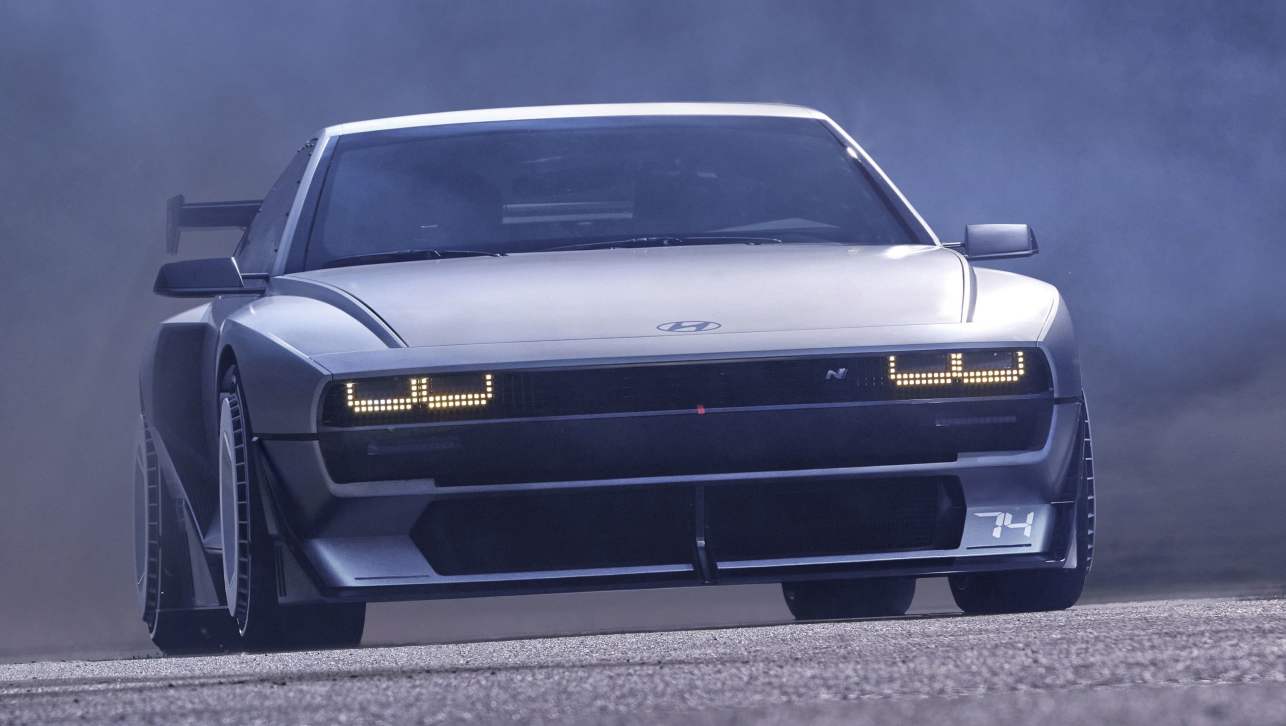Hyundai is set to make its head-turning supercar concept a reality.
The striking N Vision 74 concept, which debuted in 2022, will enter production from 2026 according to a report from Korean newspaper Hankung.
It’s not just its wild looks that are eye-opening, it’ll also be hydrogen-powered according to the report.
The hydrogen fuel cell, which converts hydrogen to electricity with water the only tailpipe emission, will feed an electric motor that sends at least 578kW to the rear wheels.
It will be able to sprint from 0-100km/h in about three seconds.
Hyundai is only going to produce 200 of the supercars and it is likely to be priced at more than $550,000 if it ever makes it to Australia.
The South Korean brand is one of the few car makers well advanced with hydrogen fuel cell technology, along with BMW, Honda and Toyota.
Hyundai has had a fleet of its Nexo hydrogen fuel cell SUVs in Australia since 2021.

The cars are not for sale but were instead part of a trial for the emerging technology and were leased to companies and government fleets.
Toyota had a similar trial in Australia with its Mirai hydrogen fuel cell vehicle.
The problem with hydrogen in Australia is the lack of refuelling infrastructure with fewer than 10 facilities nationwide.
There are plans afoot to quench the drought of hydrogen refuelling stations, though.
In October, 2023, Hyundai and Toyota signed a memorandum of understanding with Ampol and Pacific Energy to develop a wider network of refuelling stations.
“Toyota has joined forces with three other industry heavyweights to accelerate the reality of a hydrogen society built upon clean and renewable energy technology,” Toyota Australia said at the time.
“We have signed a memorandum of understanding with Hyundai Australia, Ampol and leading hydrogen technologies specialist Pacific Energy to help develop hydrogen refuelling infrastructure.
“This partnership agreement brings together four like-minded companies that are all leading proponents of Australia’s growing hydrogen economy.

“Both Toyota and Hyundai have fuel-cell electric vehicles in customer programs while Ampol and Pacific Energy are heavily invested in growing sustainable energy development and distribution."
Hydrogen isn’t believed to be widely adopted in passenger cars in the near future but is seen as a zero-emissions solution for heavy transport. The weight and cost associated with giant batteries for heavy vehicles is a roadblock to them going electric.
Producing hydrogen is extremely energy intensive and costly, though.
Green hydrogen is the term used to describe hydrogen made using renewable energy such as solar, but there are few applications of this globally.




.jpg)

.jpg)











.jpg)
.jpg)
.jpg)
Comments